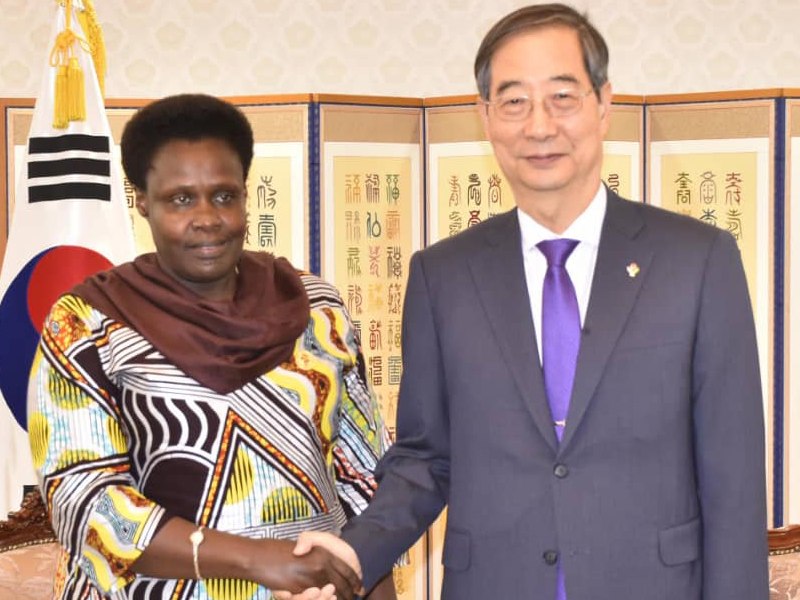In a significant move towards diversifying energy sources and promoting sustainable development, Uganda and South Korea have launched a joint initiative to construct a nuclear power plant in Buyende District, eastern Uganda.
Energy Diversification and Sustainable Development
Uganda’s Vice President, Jessica Alupo, announced the project, which aims to supplement the country’s electricity supply. Currently, Uganda relies heavily on hydropower resources, but the goal is to generate 54,000 megawatts (MW) of electricity, with 24,000 MW coming from nuclear power.

The announcement came during a meeting between Vice President Alupo and South Korean Prime Minister Han Duck-Soo in Seoul. The two leaders discussed the project and emphasized the long-standing diplomatic relations between their countries, dating back to 1963. The meeting was a precursor to the Korea-Africa Summit, scheduled for June 4-5, which aims to enhance cooperation between South Korea and Africa. The summit will focus on shared growth, sustainability, and solidarity.
While diplomatic relations are a key aspect, the summit also highlights business opportunities and economic collaboration. South Korea aims to enhance its assistance to Africa, tailoring support to meet the specific needs of each nation. South Korea seeks to create an environment conducive to collaboration between Korean and African companies, facilitating greater business integration and mutual growth. The country also aims to leverage the African Continental Free Trade Area agreement to address trade barriers.

The collaboration on the nuclear power plant in Uganda demonstrates the broader strategic interests shared by both countries. It signifies a step towards meeting Uganda’s growing energy needs and enhancing bilateral relations through sustainable and technologically advanced projects.
The partnership between Uganda and South Korea serves as a model for other African nations seeking to diversify their energy sources and achieve sustainable growth through strategic international alliances. The success of this initiative could drive development and innovation in the region.


